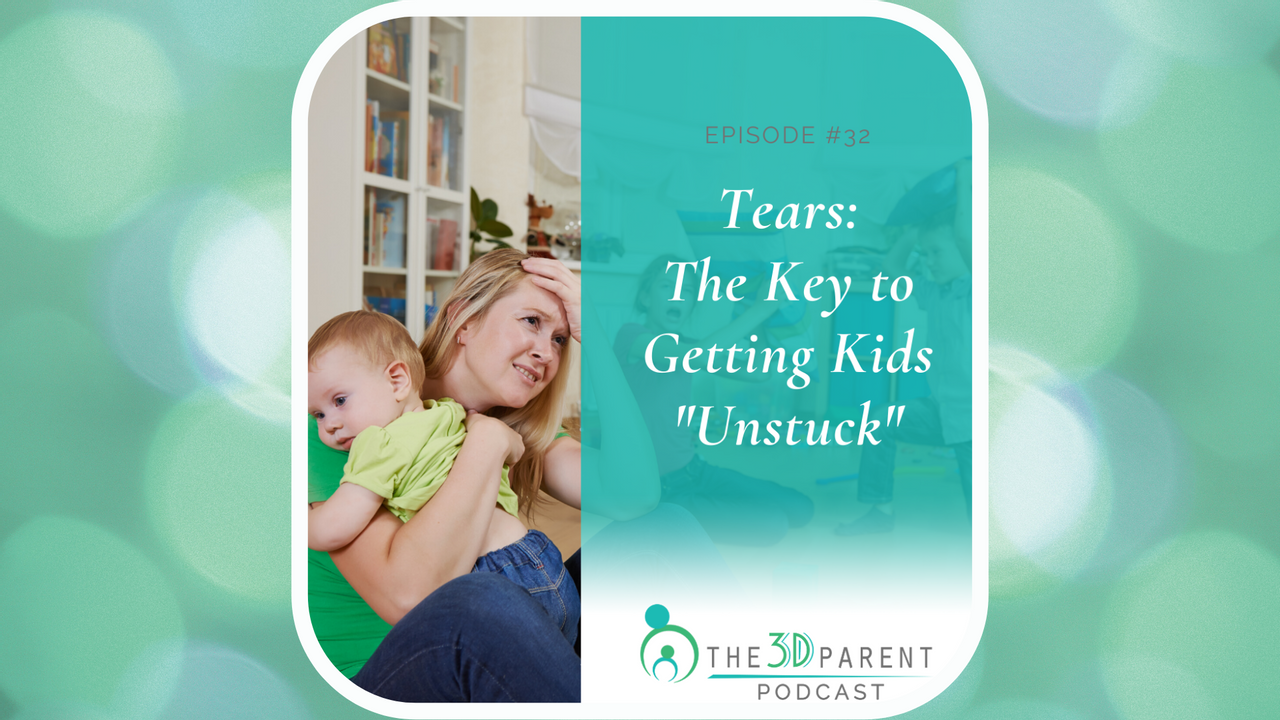Tears: The Key To Getting Your Kids "Unstuck"
May 18, 2021
“Crying and tears helped both of us deal with what was such a difficult day and a difficult process. It was a perfect illustration of how tears can be so helpful when a child can access those emotions and is willing to cry when they cannot do anything different and they realize they have to face what is in front of them.”
This week on the 3D Parent Podcast, we will be talking about the concept of crying and how it can help your child become a mature, emotionally evolved human being.
Besides discussing the benefits of crying, throughout the episode we’re also going to share tips and suggestions that can help with getting kids “unstuck” if they aren’t naturally prone to crying.
Some of the topics that we will cover include:
- Why not all tears are created equal, and how tears from emotion like sadness and frustration can actually help children (and adults!) navigate the futilities of life.
- Tips on how to help your kid access complicated feelings if they aren’t naturally prone to crying
- The importance of normalizing crying and how you can do so properly in your own family.
So often as parents, we worry about stopping our kids’ tears, but as this episode explains, it’s even more important to teach your children how to properly let out their sadness and emotions through tears. So I hope this episode helps you get your children’s tears “unstuck” and don’t hesitate to reach out on the website if you have any parenting questions!
Things You Will Learn

Quotes From Episode 32
“There's a lot of messaging that still goes on, particularly in sports, where kids are told not to cry, that it is a sign of weakness. You know, don't cry. Be brave. Be courageous. Don't cry. We need to change that narrative. We need to tell our kids that it actually takes a lot of courage and bravery to cry. That is a very strong person who allows themselves to feel the most vulnerable of feelings.”
“Normalizing the experience of crying for our children is important so they recognize that it is normal and healthy to experience these feelings.”
“When we cry out of frustration triggered by our children, they become highly alarmed when basically we are communicating to our children that they're too much for us to handle. And that can be really, really scary to children.”
“It's a cause for concern, frankly, if your child can not feel their soft, vulnerable, sad feelings, because typically kids who are numbing their feelings also don't care about anything. They numb all feelings. They don't just pick and choose. And that can cause more problematic behaviors down the road.”
“When our children are able to cry and face the futilities of life, they become more resilient. They become adaptive human beings, and they can feel it is survivable. They can get through hard things and come out on the other side and be so much stronger. And those are really important building blocks for maturation.”
Let's work together! I provide 1:1 support for parents motivated to make positive changing in their parenting and gain confidence and increase fulfillment in their role as parents. If this sounds like it might be what you've been looking for, book a free consultation today.
Stay connected with news and updates!
Join our mailing list to receive the latest news and updates from The 3D Parent.









